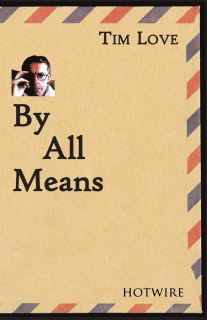"Dark Horse issue 41" has 96 pages, nearly half of them devoted to the editorial, essays, an interview and bios (just one page of them). There are essays about the role of the internet in damaging the reputation of living poets, and articles examining the reputation of dead poets. Was Anthony Hecht a misogynist? Was Whitman?
I've wondered before about how writers' reputation are affected by their deaths. For some, it's as if the literary world is waiting for them to die so they can be written out of the records. A poet can write good poems, they can help keep a poetry institution or magazine going, but if others write better in a similar style, if someone can step into their vacated role, they'll soon be forgotten.
Then there are the larger-than-life writers, those who are for some reason memorable. There's a risk that when they die, their poetry will go down with them, sometimes undeservedly.
Karl Knights' essay "Three Palsied Poetry: Poetry and Disability" looks at the reputation of 3 poets who had cerebral palsy. Because of their disability they were all physically memorable. I suspect people found it hard not to think of the poet when they read the poetry. This can work both ways.
- Larry Eigner (I've never heard of him) struggled to type with 2 fingers. He wrote little about his disability. He was in seminal Black Mountain and L=A=N=G=U=A=G=E publications. Though championed by William Carlos Williams, Bukowski, etc, he received little recognition in his lifetime. He's beginning to receive acclaim. Knights thinks that "By focussing on form and experimentation, he made a posterity for his work likelier."
- Vassar Millar (I've never heard of her) wrote much more often about her disability. She wrote religious poetry too and was rigorously formal. James Wright admired her work. She was nominated for a Pulitzer in 1961. Knights thinks that "Since her death, her work has been almost entirely forgotten."
- Christy Brown's "My Left Foot" was published when he was 22. I've read it and I've seen the film. Brown later thought the book was 'immature juvenilia'. He spent 17 years writing "Down All the Days", a novel which received much acclaim - "the most important novel since Ulysses" said an Irish Times reviewer. Knights thinks that "Brown's novels have come to be seen as frivolous novelties". They're now out of print, though "My Left Foot" is still around.
Later Knights writes that "The only instance I can think of where a disabled person attained an editing post is Judy-Lynn del Ray". As he points out, this infiltration into the institutions is important. I think it's why cultural changes can take years - first there were more woman writers, then more women editors, then there were women writers who grew up in a world where there were more women editors.
 We had 4 days in Krakow, staying in a place whose staircase reminded me of Edinburgh tenements. We saw the Salt mines, the lively Jewish Quarter, and a few Museums. Being with the younger generation opened my eyes to how things are nowadays - useful for updating my story-writing. I took my first Uber, stayed at my first airbnb, learnt about reviewing, and watched while the rest of the family hired scooters for little trips.
We had 4 days in Krakow, staying in a place whose staircase reminded me of Edinburgh tenements. We saw the Salt mines, the lively Jewish Quarter, and a few Museums. Being with the younger generation opened my eyes to how things are nowadays - useful for updating my story-writing. I took my first Uber, stayed at my first airbnb, learnt about reviewing, and watched while the rest of the family hired scooters for little trips.  From the tower in the square we got a good view. We've been to Prague, and noted a few similarities. Wedded couples were being photographed around the town. Drivers were good about stopping at zebra crossings. I saw no betting shops. There were a few (sometimes chic) second hand shops, lots of "Alcohole" shops but no public drinking.
From the tower in the square we got a good view. We've been to Prague, and noted a few similarities. Wedded couples were being photographed around the town. Drivers were good about stopping at zebra crossings. I saw no betting shops. There were a few (sometimes chic) second hand shops, lots of "Alcohole" shops but no public drinking. At the foot of the tower is a popular photo-opportunity - people poke their head through the eye hole.
At the foot of the tower is a popular photo-opportunity - people poke their head through the eye hole. My story collection "By All Means" (ISBN 978-0-9570984-9-7), published by Nine Arches Press, is on sale from
My story collection "By All Means" (ISBN 978-0-9570984-9-7), published by Nine Arches Press, is on sale from  My poetry pamphlet "Moving Parts" (ISBN 978-1-905939-59-6) is out now, on sale at the
My poetry pamphlet "Moving Parts" (ISBN 978-1-905939-59-6) is out now, on sale at the 